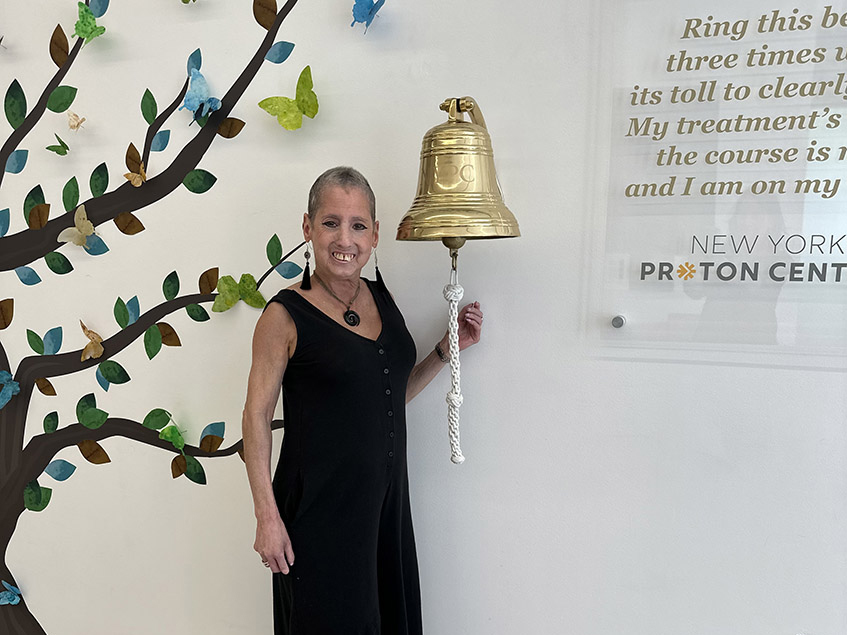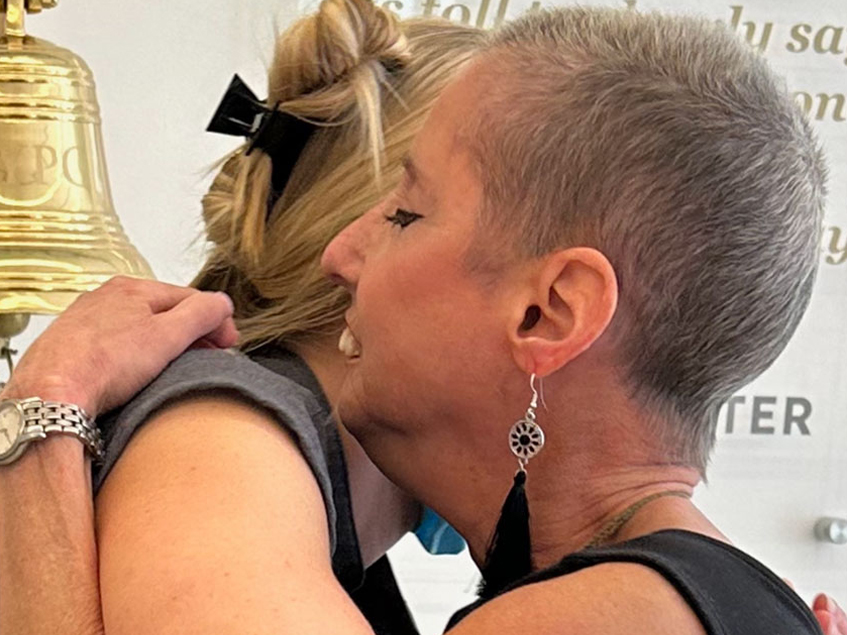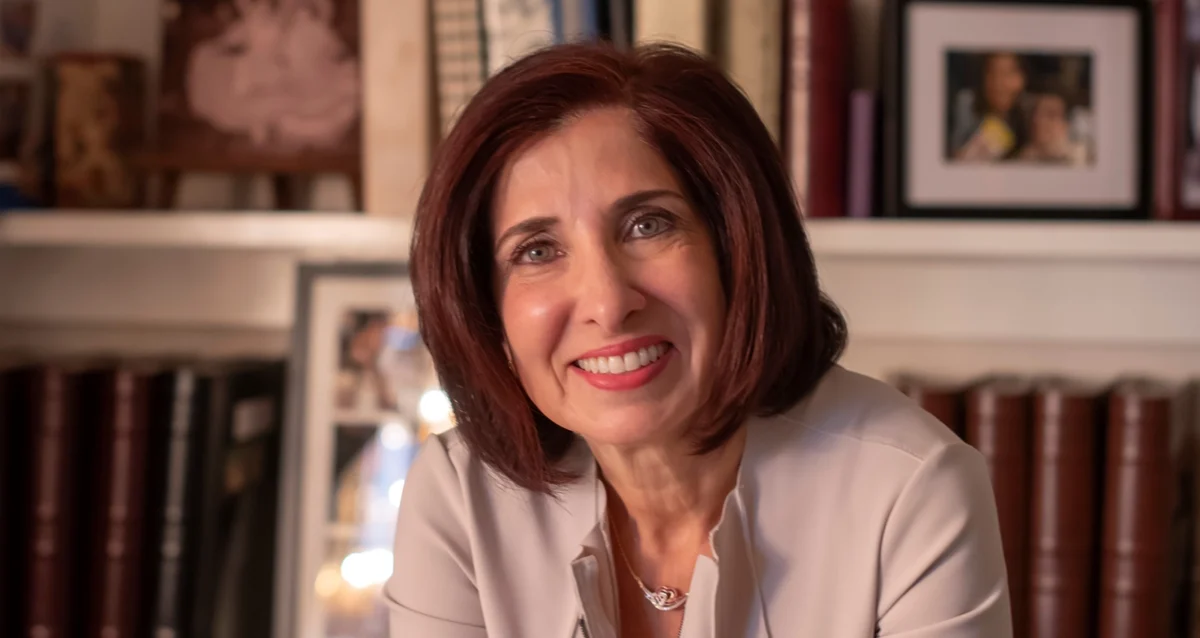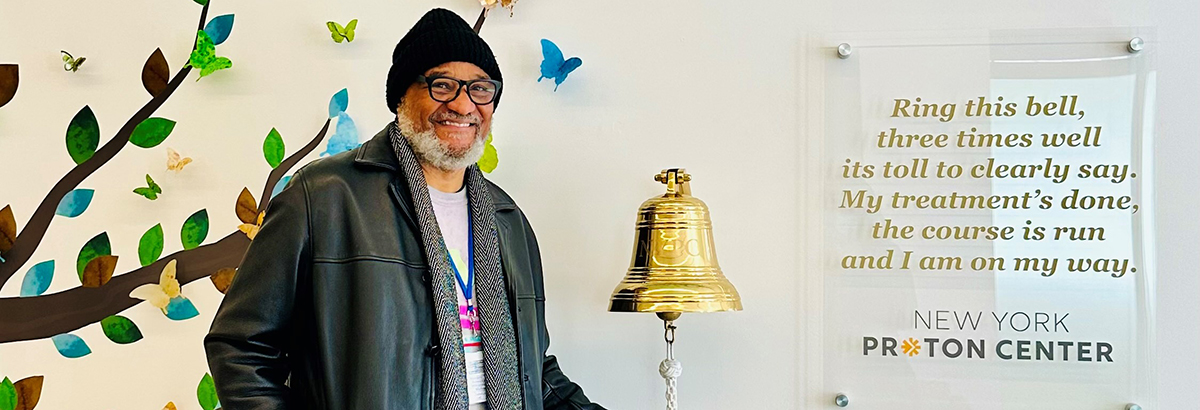Lung Cancer: Meet Patti
Patti Gonchor, a vibrant and energetic 62-year-old woman living on Long Island, New York, never allowed her health conditions to interfere with her busy, active lifestyle. At ten years of age, Patti was diagnosed with scleroderma, an autoimmune disease that causes abnormal growth of the body’s connective tissues and can damage blood vessels and organs, including the lungs, heart, kidneys, and the digestive system. Mindful of her chronic and potentially life-threatening condition, Patti diligently went to her annual health screenings while living life to the fullest and enjoying a successful career as a director at several start-ups and food industry companies.
Over the years, Patti developed another chronic condition, peripheral vascular disease (PVD), a slow and progressive circulation disorder caused by the narrowing, or blockage, of blood vessels. In 2019, she lost her right leg above the knee due to complications from the surgical repair of an artery in her leg.
Then, three years later, in 2022, Patti was diagnosed with limited stage small cell lung cancer, a less common yet highly aggressive form of lung cancer.
Under the care of Dr. Kenneth K. Ng, Thoracic Oncologist at Memorial Sloan Kettering (MSK), one of the New York Proton Center’s three partner hospitals, Patti received chemotherapy at MSK’s office in Uniondale, Long Island. After she completed chemotherapy, she was met with more unsettling news. “When I went for my first PET scan, the results were not beautiful,” says Patti. “Dr. Ng told me to come back in three months for a repeat PET scan, and when I did, the scan showed my cancer had spread to an area that was very close to my esophagus, so I was pretty worried.”
Patti’s cancer had metastasized to her mediastinum, an area of the chest between the lungs that contains the heart, large blood vessels, windpipe, and esophagus. Because of her scleroderma, Patti knew that she was at particular risk for complications to her esophagus.
Proton Therapy Can Reduce Risk of Complications
When Patti met with Dr. Ng to discuss her treatment options, Dr. Ng explained that in order to eradicate the cancer, she would need chemotherapy followed by radiation therapy. However, when cancer in the mediastinum is treated with conventional radiation, it is difficult to deliver a high enough radiation dose to control the cancer without also damaging the lungs, esophagus, heart, and surrounding tissue. Moreover, Patti’s other medical conditions placed her at high risk for complications to the esophagus, lungs, heart, and skin that can result from conventional radiation treatment.
Seeking another radiation therapy option, Dr. Ng consulted with MSK Radiation Oncologist, Dr. Annemarie Shepherd, who recommended that Patti receive proton therapy, which delivers radiation that specifically conforms to the shape and depth of the tumor. With proton therapy, radiation oncologists can treat the tumor with a higher dose of radiation and significantly reduce the amount of radiation delivered to healthy organs and surrounding tissues.
“Patti has scleroderma, which places her at risk for serious esophageal complications, and she also has interstitial lung disease, which affects the tissues and spaces around the air sacs in the lungs and puts her at high risk for serious radiation pneumonitis, or lung inflammation,” says Dr. Shepherd. “For Patti, proton therapy would reduce the exposure of radiation to Patti’s lungs and esophagus, thereby minimizing risks of lung and esophageal complications, as well as other complications that can occur with conventional radiation treatment.”
“When Dr. Ng and Dr. Shepherd told me about proton therapy, I had never heard of it before,” says Patti. “I did a lot of research about how it works and quickly realized it was a great option for me.”
“Dr. Shepherd also explained that proton therapy could still damage my esophagus, but on balance it was less risky and a better choice for me because of my other health conditions,” she adds.
After finishing her course of chemotherapy at MSK in Uniondale, Patti received 30 proton therapy treatments at the New York Proton Center.


Treatment in a Warm and Inviting Setting
“Coming to the proton center was a pleasure,” recalls Patti. “The Center looks like a spa, and you don’t even think you’re in a medical facility. They played the music of my choice in the treatment room, which was very soothing.”
“And the staff were unbelievable,” she continues. “They were the most friendly, genuine staff you could ever ask for. The nurses, the radiation therapists, Dr. Shepherd, and the security staff, all were unbelievably wonderful and helpful.”
Besides a little fatigue, proton therapy did not hamper Patti’s enthusiasm for life. “I was a little tired after the therapy, but I try to get out every day, whether it’s to run an errand or to meet my sister at Starbucks,” she says. “Getting out keeps my spirits and energy up.”
“Dr. Shepherd also mentioned that side effects can happen in the months after radiation,” she continues. “Right now, everything is ‘so far, so good.’ I am even thinking of doing some consulting work soon if I continue to feel well.”
For Patti, not only was proton therapy the best treatment option for her, it was delivered in a warm and inviting setting that encourages healing and wellness. “It was so nice to come to a place where you feel like everyone knows you and calls you by your name,” she says. “At the proton center, I really got to know everyone on a whole other level. I feel like I’ve launched relationships with some of the technicians and the security people, and these are relationships I hope to keep.”
To mark her last day of proton therapy, Patti had a bell-ringing ceremony in which she was surrounded by her treatment team. “I couldn’t be luckier,” says Patti. “I would not be where I am today without the amazing support of my family, my boyfriend, and my friends, and without the expert and compassionate care provided at the New York Proton Center.”
Genuinely At Ease
“At the proton center, I really got to know everyone on a whole other level. I feel like I’ve launched relationships with some of the technicians and the security people, and these are relationships I hope to keep.”



